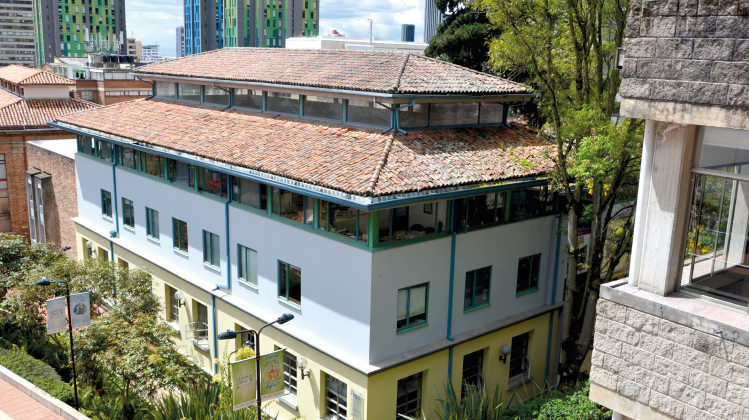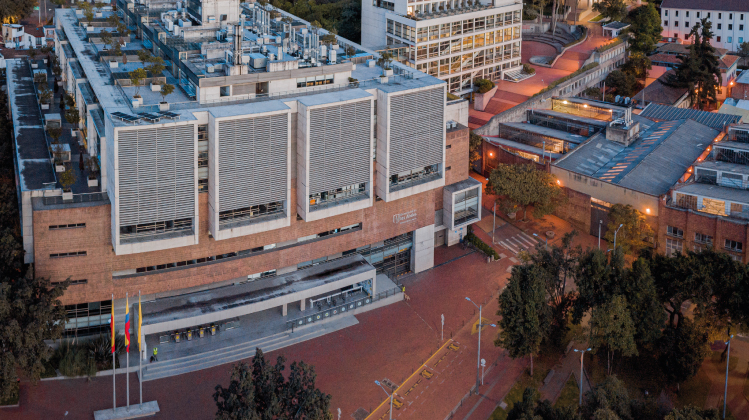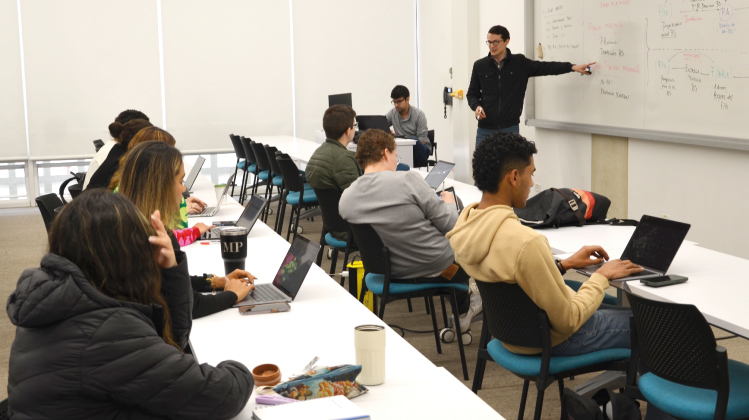Open Letter to the Colombian Government and the International Community, written by the members of the International Law area of the Universidad de los Andes Law School
We – the undersigned professors, practitioners, researchers, lawyers, and students of public international law from different legal traditions around the world – note with grave concern the Colombian police’s disproportionate use of force on unarmed demonstrators exercising their fundamental human right to peaceful assembly.
Since April 28, thousands of protesters, triggered by President Duque’s controversial tax reform in the midst of the highest unemployment rates and worst death tolls from the COVID-19 pandemic, have been met with disproportionate use of force by the national security forces and anti-riot police (Escuadrón Móvil Antidisturbios ESMAD). The Colombian Office of the Ombudsman as well as local and international NGOs have reported at least 24 deaths, many disappearances, hundreds injured or arbitrarily detained, and targeted assaults on women, human rights defenders, and journalists by the Colombian police. International human rights standards as well as Article 218 of the Colombian Constitution mandates police to maintain the necessary conditions for individuals to exercise their rights and freedoms. Considering the ongoing situation, we are concerned that this mandate is not being upheld and that the fundamental rights of thousands of Colombians are in grave danger.
The Office of the United Nations High Commissioner for Human Rights reminds “[s]tate authorities of their responsibility to protect human rights…to facilitate the exercise of the right to freedom of peaceful assembly and…law enforcement officers should abide by the principles of legality, precaution, necessity and proportionality when policing demonstrations.” Though the police committed abuses during the November 2019 and September 2020 protests, the current situation shows increased cases of police repression and use of lethal force, as well as the addition of a militarized response, as denounced by Amnesty International. The Inter-American Commission and Court of Human Rights have made clear that the armed forces should not be involved in controlling isolated situations of public disorder or violence should they arise during peaceful protests because “the history of the hemisphere shows that…the intervention of the armed forces in matters of internal security … carries a risk of human rights violations” as they are trained to fight enemies for national security defense and not to protect and control civilians. The UN Human Rights Committee’s General Comment on the Right of Peaceful Assembly notes that “there is a presumption in favour of considering assemblies to be peaceful and … isolated acts of violence by some participants should not be attributed to others.” In any case, violent assemblies may be dispersed and those who commit violent acts may be arrested and prosecuted but they do not alter the state’s obligation to protect the rights to life and to freedom of expression and assembly of peaceful protesters, and to prohibit the arbitrary detention, torture, or ill-treatment of violent ones.
We understand the current abuse of force in the context of Colombia’s troubled record of human rights violations, especially those related to the exacerbation of socio-economic inequalities in the midst of the COVID-19 pandemic, the implementation (or lack thereof) of the 2016 Peace Agreement for transitional justice, and the systematic persecution and killing of social leaders, human rights defenders, and demobilized former guerilla members.
For all of the above, we categorically reject the Colombian security forces excessive use of force and the government’s efforts to criminalize protesters in order to suppress their right to peaceful assembly. Moreover, we urge the Colombian state to comply with the international standards on the use of force and to investigate effectively, impartially, and in a timely manner any allegation or reasonable suspicion of unlawful use of force or other violations by law enforcement officials in the context of the current protests. Individual officials responsible for violations must be held accountable under domestic and, where relevant, international law, and effective remedies must be available to victims. We also urge the state authorities to cooperate openly and actively with international organizations and civil society associations in issues related to these matters.








